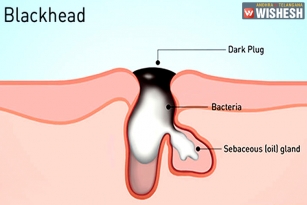
Depression is no more just limited to our thoughts, but it shows of on our face and most important around our eyes.
Stress is any situation that results in a reaction of the body called the stress response. The stress response is how the body responds to everyday challenges as well as to more threatening or dangerous situations. The stress response is also known as the "fight or flight" response. In the stress response, the body pumps up its ability to effectively respond to threats, hardships, and adversity in order to increase its chances of survival. The stress response results in the release of cortisol, a hormone that increases blood glucose levels. The stress response also results in stimulation of the sympathetic nervous system, leading to the release of catecholamines, especially epinephrine (adrenaline). Catecholamines induce vasoconstriction and increases in heart rate and blood pressure. This increases the amount of nutrients and oxygen that is available to the muscles to react to a situation during the stress response. At the same time, the stress response temporarily suppresses body functions and systems that are not critical to improving the body's readiness to fight or flee. These include the immune system, digestion, growth and reproductive system.
The stress response effects make the mind more alert and the body better prepared to physically react to dangerous situations, such as being attacked by a mugger. However, the body responds in the same way to any stressful situation, such as financial hardships or the death of a loved one.
Having moderate amounts of short-term stress responses can be helpful in making a person more productive, effective or efficient in everyday life. These stressors, such as having an important exam or a deadline at work, do not last long, and the stress response disappears and the body goes back to normal function after they have passed. This is called acute stress. However, chronic stress, such as that from long-term financial hardships or ongoing problems at work or with a relationship, do not give the body a chance to return to normal biological functioning. This can result in a negative impact on health and such symptoms as poor concentration, anger, depression, anxiety, rapid heart rate, palpations and muscle tightness.
Over time chronic stress can be a factor in the development of heart disease and type 2 diabetes. Making a diagnosis of stress or stress-related conditions and disorders, such as heart disease, begins with taking a thorough personal and family medical history, including symptoms and questions about the amount and types of stressors a person has. Other factors evaluated include lifestyle, dietary habits, weight, cholesterol levels, blood pressure, symptoms of depression or anxiety, sleep patterns, and smoking/drinking habits. A diagnosis also includes completing a physical examination, which may reveal an elevated heart rate (tachycardia) and blood pressure (hypertension).
For people who have experienced chronic stress or have risk factors or symptoms of heart disease or diabetes, diagnostic testing can include a wide variety of tests that evaluate blood sugar and the health of the heart and cardiovascular system. These include glucose blood tests and other blood tests, exercise stress testing, EKG, X-Ray, and imaging tests, such as heart scan, ultrasound and echocardiogram. A coronary angiogram may be done in certain cases in which there is evidence of significant coronary artery disease. A coronary angiogram is an invasive procedure that reveals which coronary arteries are narrowed or blocked. It is not unusual that a diagnosis of stress is missed or delayed because some symptoms are similar to symptoms of other diseases and disorders and for other reasons. Treatment of acute stress and chronic stress varies depending on the severity, the cause and other factors. A large part of treatment includes lifestyle changes. Medications may also be needed in some cases. Stress: Emotional stress or just "stress" is not considered a formal psychological disorder. A psychologist may categorize the condition as "general stress" or perform treatment for "general stress management", but ordinary levels of stress are not considered a valid formal psychological diagnosis.














